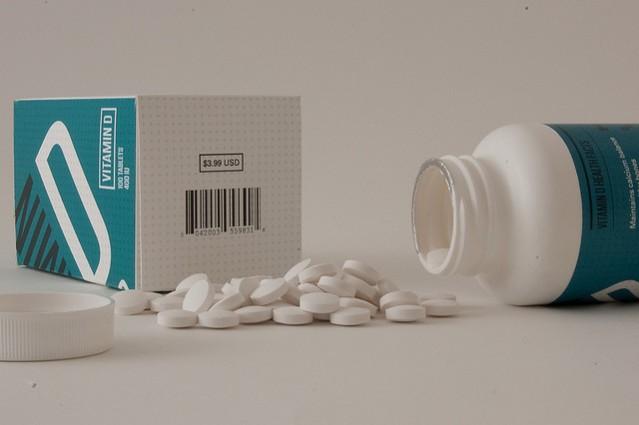
Vitamin D deficiency can increase the risk of brain strokes, a team of Indian researchers say.
Vitamin D is an essential nutrient that helps keep bone and teeth healthy. Additionally, it also plays a major role in the regulation of calcium and phosphate in the body. Vitamin D can be acquired either through exposure to sunlight or through regular consumption of certain foods. Oily fish like tuna, sardines, egg yolks, cheese, beef liver, shiitake and button mushrooms are some of the natural sources of vitamin D.
Pregnant and lactating women, adults aged above 65 and young children aged below five are some of the groups of population considered to be at higher risk of suffering from a vitamin D deficiency. Health experts recommend these groups to take daily supplements - 10 micrograms of vitamin D for the first two groups, 7 - 8.5 micrograms for the latter - to maintain adequate levels of the nutrient in the body.
A severe vitamin D deficiency has been linked to bone-softening diseases in children known as rickets and osteomalacia in adults. Maintaining sufficient levels of vitamin D has been found to reduce childhood wheezing and type 1 diabetes in children.
In the new study, a team of doctors from Yashoda Hospitals and Nizam's Institute of Medical Sciences (NIMS) in Hyderabad followed 250 brain stroke patients, for a period of two years. Shedding more light into the adverse outcomes associated with vitamin D deficiency, researchers found a clear association between the two. Of the total participants, 122 suffered from vitamin D deficiency. Additionally, some risk factors and risky behaviours linked to strokes were highly prevalent among the participants. Majority of the participants were suffering from chronic diseases like hypertension (57 percent) and diabetes (50 percent). Smoking (35 percent) and addiction to alcohol (30 percent) also highly prevailed among the participants, The Hindu reported.
"Vitamin D is being increasingly associated with a host of ailments including cardiovascular diseases. Our study proves that in addition to other ailments, Vitamin D is also associated with strokes," senior neurologist Dr. Jaydip Ray Choudhari, who led the study, told The Hindu.
Highlighting the association, researchers urged doctors to regularly screen their patients for vitamin D levels. "It is an indication for health care providers to frequently check for Vitamin D levels in patients. There is a need for awareness among public," Dr. B. Balraju, a former Superintendent of Gandhi Hospital, added to the newspaper.
Experts from Mayo Clinic in the US recommend children and adults aged between one and 70 to take 600 IU of vitamin D per day and 800 IU for older people aged above 71. Research shows that nearly 1 billion people worldwide suffer from vitamin D deficiency.
During a stroke, blood supply to the brain gets interrupted, affecting the normal supply of oxygen and nutrients to the brain, thus damaging brain tissue. Stroke is one of the leading causes of death across the globe. Nearly 15 million people experience stroke every year, five million people lose their lives to the deadly disease and another five million become permanently disabled due to the condition, according to World Health Organization (WHO).
Nearly 1.5 million Indians are affected with strokes every year. Stroke cases across India will go up from 1,081,480 in 2000 to 1,667,372 in 2015, according to the Indian National Commission on Macro-economics and Health.








